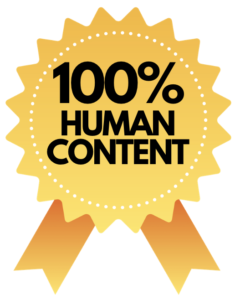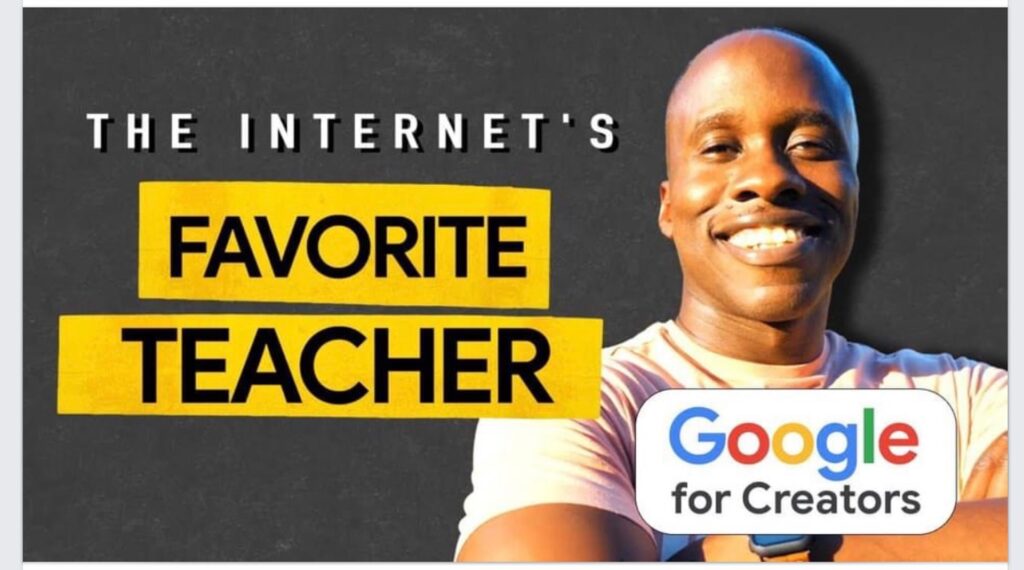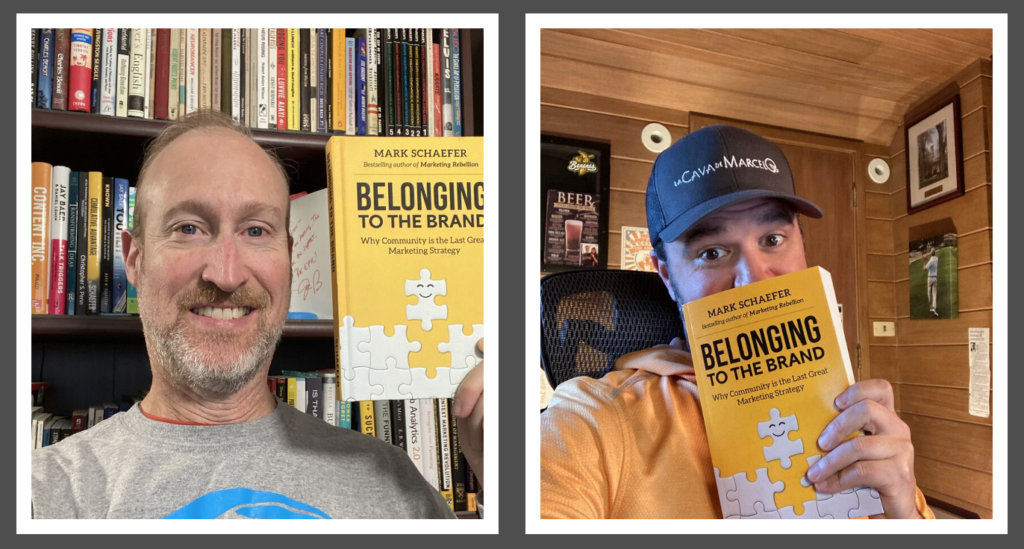
I recently had an exchange with a friend who described a person who seemed to be doing everything right with his personal brand but had no progress with monetization. He wondered why his friend was failing — to the point of quitting. It made me reflect on the pitfalls of personal branding. Under what circumstances will even an excellent personal branding effort fail?
There are five pitfalls of personal branding. You’ll want to avoid these problems and we’ll dig into those today.
The personal branding path
First, let’s take a step back and examine the fundamentals of developing a personal brand.
I wrote the all-time best-selling book on personal branding and also teach a popular online course on the subject. I help people focus on becoming “known” in their industry, not famous. Being “known” in the digital world means you have the reputation, authority, and presence to get your job done.
 There are four main steps in my process:
There are four main steps in my process:
- Identifying where you fit in the business eco-system — what you want to be known for. It’s not as easy as it seems, requiring research, introspection, and insight.
- Finding the most productive place to tell your story.
- Consistently create one form of content that effectively tells your story (you only have four choices by the way!)
- Developing an actionable audience (which is different from a customer list or social media connections)
So, the path is straightforward but there are no shortcuts. It’s not necessarily easy, but it works!
But when does it fail? I see five pitfalls:
Pitfall 1: Too small of a niche
When it comes to navigating a career in the creator economy, there’s a lot of popular advice about narrowing your niche. But what happens when your niche is so narrow that there aren’t enough people who care? You can niche yourself out of business.
I’m not a fan of the overly-narrow niche.
I like this example instead:

Here we have my friend Leslie Samuel proclaiming that he is the internet’s favorite teacher. Is he really? Maybe. Kind of hard to prove! But the most important thing is that he is claiming his crown.
We see that he is teaching a class on Google for Creators. But if you are known for being the internet’s favorite teacher, there are A LOT of things he could teach. Endless possibilities. This is a nice big niche, isn’t it?
On the other side, I once had an inquiry from a person who was the foremost authority on collecting autographs. He worked and worked but could not find a way to monetize. He was passionate about his hobby, but the niche was too small. Not enough people cared about his work and were willing to pay him.
So, pitfall number one is niching down to the point where nobody cares.
Pitfall 2: You’ve targeted the wrong audience
One of my all-time marketing heroes is Jay Baer. The guy is incredibly talented, hard-working, and insightful.
Jay built one of the most effective personal brands in the business world, and that jetted him to the top of most lists of the best marketing consultants, authors, and speakers.
Now, Jay is making a major pivot. After selling his agency, he’s becoming a tequila influencer!

Jay spent two decades carefully crafting his personal brand in the marketing space. But as he jolts into this new career, that audience probably doesn’t matter any more … at least not much.
Jay is doing the hard work of building an entirely new tequila-centered audience. His pivot is a masterclass in creating a new personal brand.
There is just no shortcut. You have to build the right audience for your message to resonate.
Pitfall 3: You’re known, but irrelevant
This is a particularly acute challenge right now, as AI changes many careers and threatens hard-earned skills sets.
A few years ago, there was a rockslide in America’s Zion National Park that was so massive, it literally changed the course of a mighty river.
That’s AI today — A rockslide that is changing the course of MANY mighty rivers.
Recently, my Joe Pulizzi and Brian Piper worked on a new edition of the book Epic Content Marketing.
Here is a picture of the two of them holding their favorite book:

Hee hee. I couldn’t resist! Of course that is my book!
The Epic Content book was scheduled to be released on Valentine’s Day — February 14, 2023. But guess what happened six weeks before the release of their book?
ChatGPT.
My friends, that is a content marketing landslide!
After all of their hard work, Joe and Brian were at risk of being known for a largely irrelevant book. So what did they do? They delayed the launch of the book and wrote new copy that acknowledged the presence of AI. And now, they are newly-relevant.
For almost any personal brand based on a white-collar, knowledge-based skill, there must be a period of reinvention — right now — or you risk irrelevance.
An effective personal brand is a never-ending fight for relevance.
Pitfall 4: You’re known, but not effective
I won’t name names, but there’s a very well-known dude, bordering on famous, who has been a regular on the marketing speaker circuit for many years. The two worst speeches I have ever seen in my life (by far), were both by this guy. One of the speeches was so bad, the conference organizer kicked-off the second day of the event by apologizing for his speech. In the other example, he was so offensive, half the people walked out by the end of his talk.
Eventually, this fellow’s career imploded. Nobody is hiring him any more, even though he is still very well-known. Even if you’re working hard to become known, you must still deliver the goods. You have to be effective at what you do!
Pitfall 5: Ineffective monetization strategy
Let’s get back to the beginning of this post. What about the friend of my friend who had worked so hard to build his brand yet failed to succeed?
I checked out his website and I could not figure out what business this person was in. The site was all about how great he is and how accomplished he is, but it failed to answer a simple question: What problem does he solve … and how does this person uniquely solve it?
This is a very common mistake. A value proposition of a personal brand is not about you and your success. It’s ultimately about helping your audience with their problems.
It’s possible to become known by simply being popular or even by entertaining people. Perhaps you can even attract a few ad or affiliate sales that way. But if you’re selling a product like a course, workshop, speech, or book, you have to solve a problem.
In addition to a website being unclear about the product offering, there are a few subcategories to this clarity problem.
- The website might fail to present the product well, even if it’s useful and needed.
- The individual might be ineffective in closing the deal when people want to buy.
- The person is creating products nobody wants, even if the individual is beloved.
Conclusion: Pitfalls of personal branding
I’ve researched personal branding for years to help people avoid the problems I’ve described today. There is simply too much bad advice out there, like “If you can dream it you can be it” that leads people down a path of false hope.
Creating an effective personal brand takes a lot of time and consistent work. If you devote so much effort to this task, you need to have a plan to give you the best shot at success.
An effective personal brand is more important than ever. It may be the only thing that saves us in a world of misinformation and confusion.
If you need help on your own path, please consider my book, my class, or even a 1:1 coaching session.
 Mark Schaefer is the executive director of Schaefer Marketing Solutions. He is the author of some of the world’s bestselling marketing books and is an acclaimed keynote speaker, college educator, and business consultant. The Marketing Companion podcast is among the top business podcasts in the world. Contact Mark to have him speak at your company event or conference soon.
Mark Schaefer is the executive director of Schaefer Marketing Solutions. He is the author of some of the world’s bestselling marketing books and is an acclaimed keynote speaker, college educator, and business consultant. The Marketing Companion podcast is among the top business podcasts in the world. Contact Mark to have him speak at your company event or conference soon.
Follow Mark on Twitter, LinkedIn, YouTube, and Instagram.
Illustration courtesy MidJourney


